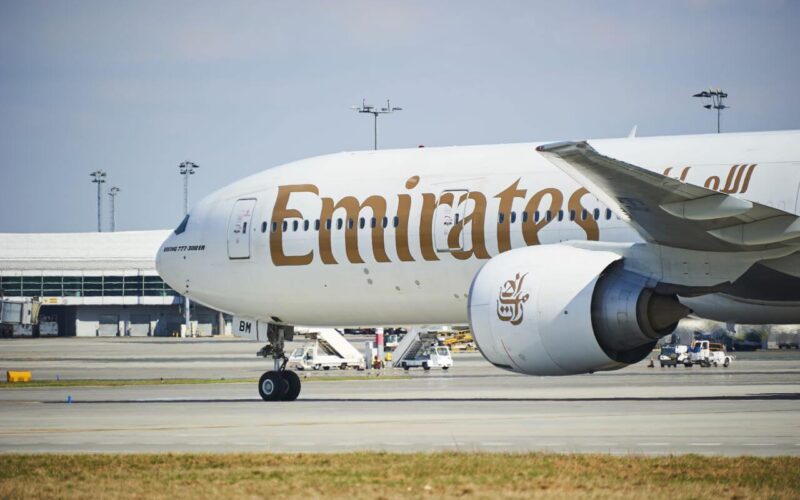The article was first published on September 6, 2019.
Emirates’ President Tim Clark is running out of patience when it comes to continuous engine and aircraft performance setbacks. Speaking with reporters on September 4, 2019, Clark expressed his weariness of reliability challenges with new aircraft and said that the airline would not take delivery of new Airbus and Boeing jets unless the plane makers and engine manufacturers – Rolls-Royce, General Electric – get their act together.
Clark delivered a stern message to the aviation industry on September 4, 2019, when he told the media that Emirates would not take in any of the new Airbus and Boeing jets either on order or being considered for purchase unless the airline’s requirements are met. One of those requirements is a “99.5%” reliability the airline expects from its fleet.
According to Clark, airframe and engine manufacturers have a poor track record when it comes to delivering planes that are service-ready from day one. He said Emirates cannot afford to keep grounding its assets for costly emergency repairs or tolerate glitches that hold up new models. New planes are bought with the expectation that they would accommodate spotless operations for at least the first five years, the airline chief said.
“I am a little bit irritated that, over the years, we as an airline, and I think as the industry, have been subjected to the requirements of the propulsion manufacturers, and to an extent the airframe manufacturers, where we are expected to deal with quality control issues and design issues, and operate these aircraft and engines, and take whatever consequences there are when they don’t work,” Clark told reporters during The World Aviation Festival in London. “We are not in a business to deal with aircraft that don’t function properly,” he was quoted as saying by Skift.
The aircraft in question
At least 200 wide-body jets are at stake: Emirates has 50 Airbus A380s as well as 150 Boeing 777Xs (115 of the 777-9 variant and another 35 of the ultra-long-range 777-8) and six 777-300ERs on order, the manufacturers’ latest figures (as of July 31, 2019) indicate. Earlier in 2019, Emirates also announced an agreement for 40 A330-900 and 30 A350-900 aircraft. The orders would bring the total number of new airplanes expected to be delivered to Emirates to over 270 jets.
With the Airbus order, the Gulf carrier embarked on its “ambitious” fleet renewal program – the largest operator of the A80 in the world began retiring the superjumbo jet, after deciding that the A380 could no longer remain the “cornerstone” of its operations. Emirates cancelled 39 A380s, leaving only 14 in Airbus’ backlog, which are to be delivered by the end of 2021. The airline also scrapped its order for 20 superjumbos in favor of the A330neo/A350XWB deal. Emirates’ fleet renewal plans, however, have now been put on brakes, as the airline studies its options.
Boeing has recently been forced to push back the entry into service of its much anticipated wide-body, partly due to General Electric GE9X engine snags, but also as it focuses its resources on resolving the 737 MAX crisis. The 787 Dreamliner was reportedly being considered as a possible replacement for Emirates’ 777Xs, however, Clark refrains from making a commitment due to the ongoing Rolls-Royce Trent 1000 problems worldwide.
Aside of Boeing aircraft, the Roll-Royce Trent 7000 and Trent XWB power the A330neo and A350XWB, respectively, while the Trent 900 is offered for the A380. As far as the Trent family of engines goes, Clark seems to have lost all confidence in the program: “There is no stability in the Rolls-Royce program at the moment as we see it,” he was quoted as saying by Skift.
“I’m not saying we don’t like the A330. I’m not saying we won’t like the 787-9 and -10. I’m not saying we don’t like the A350. These are hugely potent aircraft that eventually will get all their operations sorted out. They are outstanding designs. Unfortunately, they’re not being put together as well as they should be,” Clark told reporters in London.
With his stringent remarks, it seems the Emirates President is trying to win back the narrative. The outspoken airline chief said Emirates will honor its purchase commitments, but was keen to point out that contracts protect the airline from accepting delivery of aircraft that do not meet the required specifications. “When they don’t give me airplanes and engines that work, it’s over,” he said. “Now you produce what you say you produce. When we are ready, we’ll take it”.
The Emirates chief’s criticism of the aircraft and engine manufacturers came in a context of slowing global growth. Clark said he expects global travel demand to diminish as well, which will mean that airlines will have to be more selective toward new aircraft, as The National reports.

